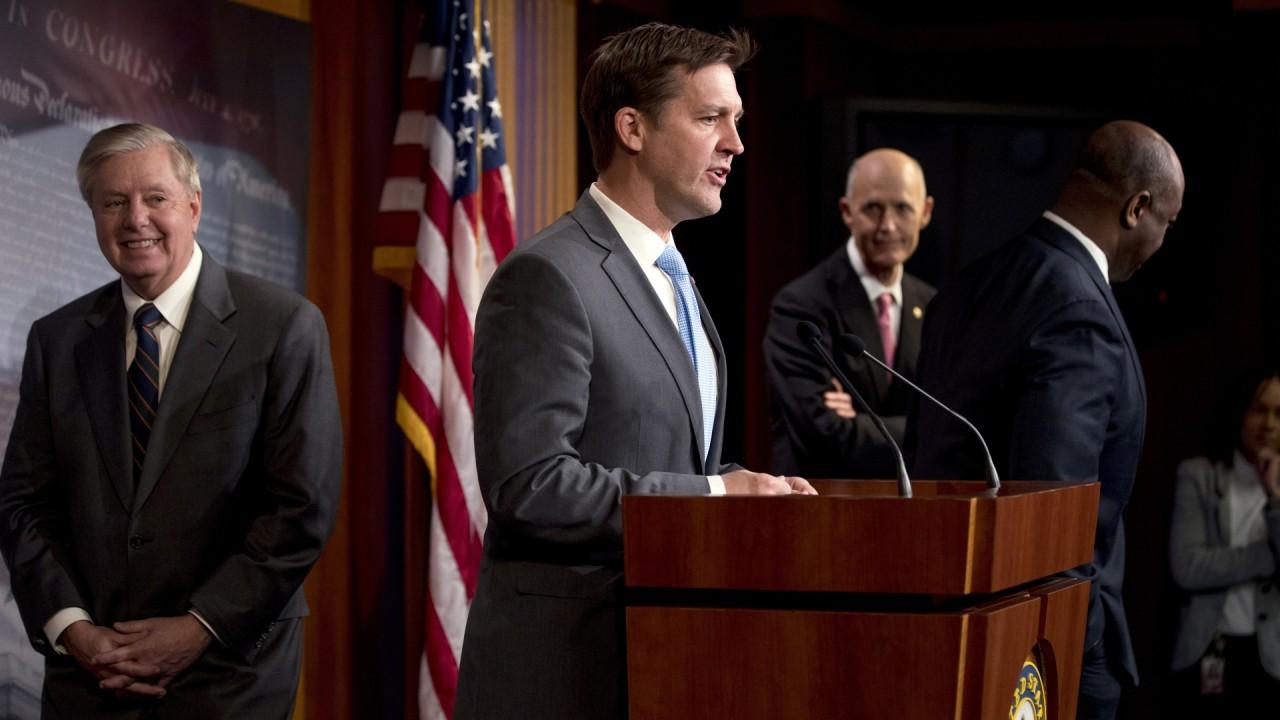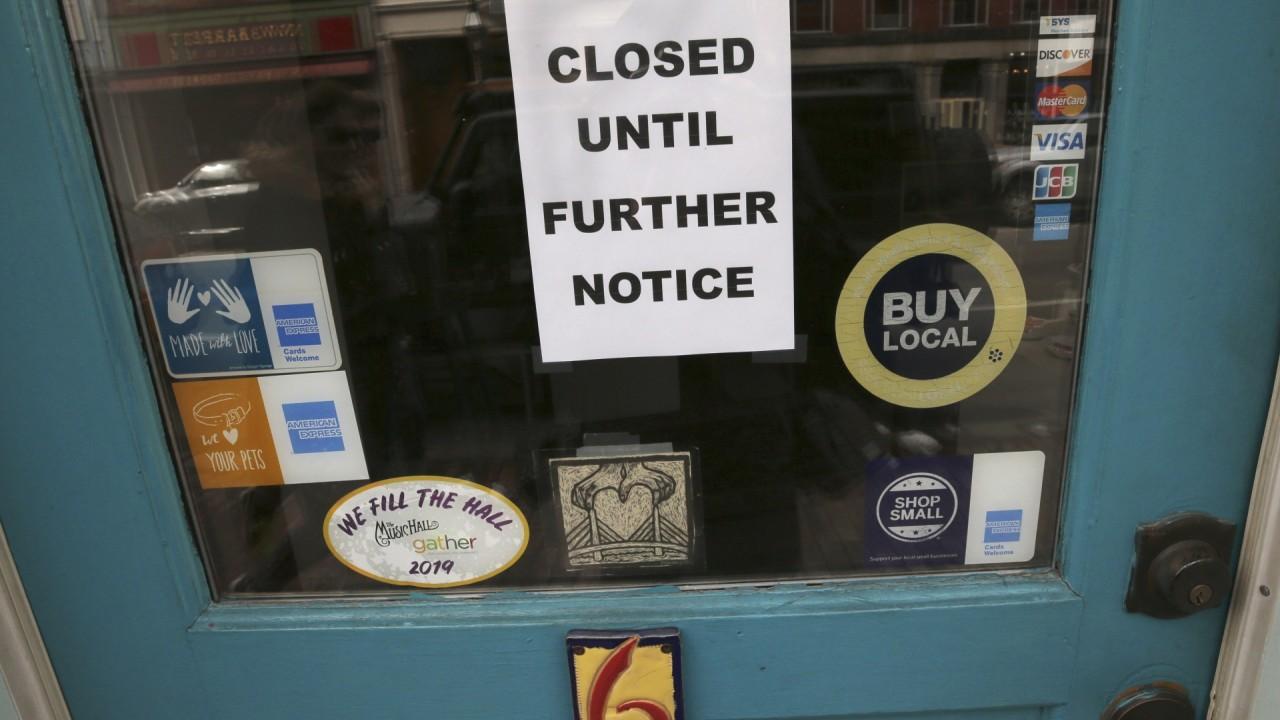Coronavirus crisis is not 2008 financial crisis -- Washington can deliver the relief America needs now
Today, businesses are facing existential challenges through no fault of their own.
Get all the latest news on coronavirus and more delivered daily to your inbox. Sign up here.
With an economic downturn certain as a result of the coronavirus, the discussion that has captivated Washington and delayed much-needed relief for Americans is whether “bailouts” should be offered to industries hit hardest by the pandemic. Many who opposed the financial and auto bailouts of 2008 are rightfully skeptical of similar efforts today.
But the circumstances today couldn’t be more different than the 2008 financial crisis, and businesses big and small don’t deserve the pejorative label attached to any financial aid they receive to weather the financial hit from the virus.
CORONAVIRUS LAYOFFS SURGE IN US, WITH 1 IN 5 HOUSEHOLDS REPORTING LOST WORK
What we witnessed in 2008 was the deterioration of significant institutions whose deficiencies were exposed by a global economic slowdown. Today, businesses are facing existential challenges through no fault of their own. To contain the spread of the virus, it is essential Americans stay home.
The most important aspect of any fiscal response to the coronavirus is to help businesses maintain their payrolls so they will be ready to open their doors when it is safe for Americans to embrace their normal consumer habits again. The Senate’s Coronavirus Relief Bill makes great strides towards this goal.
Democrats who have delayed the proceedings for days in an attempt to load up the legislation with a wish list of progressive policies did so under the pretense of opposing “bailouts” for corporations, when in reality the bill extends commonsense loan guarantees to businesses, provides tax credits for employers to pay their workers during the downturn and provides much-needed tax relief for companies to maintain cashflow.
Even a healthy company can’t withstand the shock of demand falling to zero, particularly when we don’t know how long these disruptions will be necessary to prevent the spread of the coronavirus. As a result, government support for these industries is crucial and that means increasing their access to cash. The Senate bill accomplishes this in two main ways.
The essential lifelines of tax relief, small business loans and new tax credits can help employers weather this storm until the worst of the public health pressures have passed. That Democrats have delayed the delivery of this relief for days to haggle over a political agenda is malpractice, particularly as small businesses across this country are making the decision to close their doors by the hour.
First, the bill provides an employer payroll tax holiday. Businesses will be able to delay paying their payroll taxes through the end of this year and up to 50 percent of their liability until the end of next year. This has the added benefit of not just increasing cash-flow for businesses, but also decreasing the cost of labor, since the payroll tax is assessed on every worker the business employs.
GET FOX BUSINESS ON THE GO BY CLICKING HERE
Second, the bill provides loans through the Small Business Administration to cover payroll. These loans are completely forgiven as long as the employer avoids laying off employees and pays them no less than 75 percent of their salaries during the time the legislation is in effect.
These loans could also be used to cover other fixed costs, such as mortgage interest payments, rent or utilities.
Importantly, particularly since Democrats have spent precious days blocking this bill, the legislation allows employers to rehire employees they had to lay off as a result of the coronavirus downturn and still qualify for these loans.
Employers will also have the choice of access to these loans or a new refundable tax credit that can be used to offset the cost of taxes business owners must pay for each of their employees.
The bill will also deliver direct payments to individuals. Again, 2008 cannot be used to point out flaws in this approach — it took over two months for checks to reach American households after they were authorized early in that year. This time around, thanks to the advent of online filing, the government could likely decrease the amount of time needed to get payments out the door.
CORONAVIRUS CHALLENGES FOR RESTAURANTS: WILL THEY EVER RECOVER?
But those one-time payments will have little impact on the structural support needed so when the virus threat abates, Americans can return to work and the economy can recover. The essential lifelines of tax relief, small business loans and new tax credits can help employers weather this storm until the worst of the public health pressures have passed. That Democrats have delayed the delivery of this relief for days to haggle over a political agenda is malpractice, particularly as small businesses across this country are making the decision to close their doors by the hour.
It’s important to remember that we entered this period of uncertainty from a position of strength. Before the virus began spreading in the United States the employment landscape was extraordinarily bright for an economy in the 11th year of on expansion: unemployment levels were at 50-year lows, wages were rising and the economy continued to add jobs at a clip far above what is needed to keep pace with population growth.
The American economy can rebound when the virus threat is finally lifted, but it requires decisive action. The measures in the Senate Bill will help businesses stay liquid so they can retain their employees, which in turn will grant Americans certainty during these chaotic times.
Mattie Duppler is a Senior Fellow at the National Taxpayers Union and President of Forward Strategies. Follow her on Twitter: @MDuppler.






















